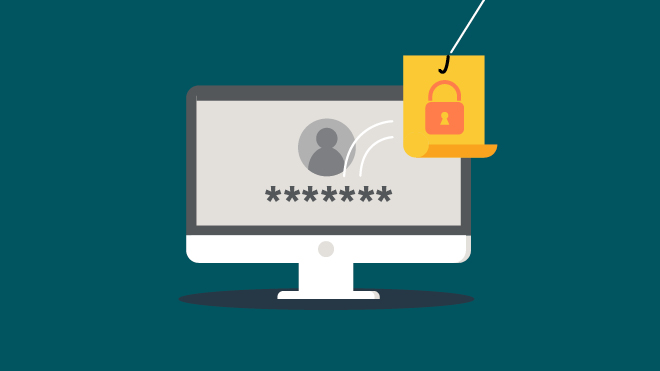
2023 Holiday Shopping Scams To Avoid
Holiday excitement can make shoppers vulnerable to scams. Stay informed and protect your finances this festive season.
It's that time of the year when ads and promotions from your favorite brands are filling your inbox, playing on your excitement and tempting you to score big on deals. (BOGO! Expires tomorrow!) But deals aren't always what they seem.
Don't fall victim to holiday shopping scams. Learn common scams to protect yourself and help prevent holiday shopping fraud. Here's what to watch out for while doing your holiday shopping online:
7 Holiday Shopping Scams To Avoid
In 2023, nearly a third of average Americans have $100 or less in their savings account.
On top of that, inflation has driven prices up — and for the first time, consumers are expected to spend $1,652 on holiday shopping, which surpasses pandemic levels of $1,496, according to a 2023 Deloitte report.
Going into the holidays with less to spend but an all-time high wish list might make hunting for deals a top priority for many shoppers this season. With consumers focused on stretching their paychecks, scammers see a big opportunity, too.
These are just seven of the current holiday scams you might encounter when you see that great deal:
1. Fake Social Media Ads
Last year, Stanley's 40-ounce tumbler went viral and is currently selling out as fast as the shelves are restocked. With over 148 million views for searches on Instagram and TikTok like #stanleytumbler, chances are good many shoppers will click on TikTok or Instagram store scams.
The newest holiday version of the viral Stanley tumbler just dropped and, unfortunately, the Better Business Bureau (BBB) warns shoppers of social media ads that con them into counterfeit merchandise — or no merchandise at all.
The BBB is known to issue scam alerts throughout the year and explains how the Stanley scam works. Essentially, tricky websites and ads claim to be selling discounted Stanley cups, but soon after ordering, users experience red flags such as no confirmation email or no contact information.
Even if you aren't planning to buy a tumbler this holiday season, avoid clicking unfamiliar ads. Instead, search for the item on the original or a reputable website.
2. Package Delivery Scams
Scammers are betting on an increase in online holiday shopping to take advantage of people with fake shipping notifications.
These scams often work by alerting you with an email or text about a problem with a package. They might include a tracking link that takes you to a login page that looks like a major shipper's website. You'll be asked to provide your username and password or credit card information. Don't fall for it. UPS and FedEx both say they will never ask you for personal information or payment information through unsolicited texts and emails.
Before you click, look closely at the link in the message to see if it's really the shipper's website.
If it's in an email, hover over the URL and make sure the link is really from the site it says it's from. UPS, FedEx and the UU.S. Postal Inspection Service provide tips on their websites for how to avoid these types of scams. UPS also shows examples of fraudulent emails and text messages (PDF).
Package Theft
But wait. Let's say your package does get delivered. Even if it's on your porch, that doesn't guarantee you'll receive it. An estimated 79% of consumers experienced package theft from "porch pirates" last year, according to a study by SafeWise, a home security consultant.
Consider these steps to protect your online purchases:
- Track packages routinely.
- Ship to a store.
- Set up a security camera.
- Install an at-home anti-theft parcel box.
- Team up with your neighbors in case you aren't home to retrieve your package.
- Use parcel pick-up lockers when available.
- Require a signature.
3. Lookalike Websites
Holidays bring countless offers and discounts. Be wary of emails and texts with links enclosed. As you quickly shop to find the best deal, a simple misspelling or wrong search could land you on a lookalike website.
Scammers often use imposter sites to get your personal information.
Consider bookmarking the real sites you use often so you don't have to type in the URL. Also, as a rule, never go to the retailer's website by clicking a link for a deal in an email, text or social media ad. Instead, go directly to the site you trust.
Sure, the deals are going fast, but taking the time to make sure you're on the right website before you give away sensitive information will ultimately save you time, money and lots of headaches.
4. Free Gifts
If you're on the hunt for online holiday deals, what better time for scammers to tempt you with fake offers for free gifts and prizes? These scams are likely to come to you through your social media feed, by text and by email. These scams aren't new, but they tend to appear more often during the push for holiday deals.
The BBB said scammers might promote a giveaway on social media. To enter, all you have to do is like or comment on the post. The more likes and comments a post gets, the more legitimate it looks to other users and the platform's algorithm. Once the fake giveaway has gotten enough attention, the scammers will change the content to include a malicious link or promote "spammy products."
5. Gift Card Scams
Gift card scams work two ways: When scammers sell you a fake gift card and when scammers require you to use a gift card to buy a fake item.
To avoid these scams, only buy gift cards from stores you know and trust. The FTC recommends against using online auction sites to buy gift cards because you might end up with a fake or stolen card.
Scammers will try to convince you to pay with gift cards because they're like cash and they are difficult to trace: Once the money is gone, it's usually gone. Scammers will play on the urgency of a deal expiring soon, but paying with a credit card won't take any extra time, and if something goes wrong, you can usually work with your credit card company to reverse the charges.
To protect yourself, only spend gift cards at the retailer the card is for. Never give the gift card number or pin to the seller.
6. Phishing and Smishing
Phishing and smishing scams are a year-round risk, but scammers use the urgency of holiday shopping deals to put a holiday spin on their efforts.
This quarter, Walmart emerged as the most imitated brand used in phishing attacks, accounting for 39% of all phishing attempts, according to Check Point Software Technologies.
In these cases, criminals try to imitate the official website by using a similar domain name or URL and a web design that resembles the real site. Scammers use both email and text messages to send out the fake website link.
The goal remains the same in these scenarios: Steal users' credentials, payment details or other personal information.
Remember, for email, it's important to look carefully at the sender's address before you open any messages. If you don't recognize it, the best thing to do is not open it and send the message to junk or spam mail. If you do open a phishing email accidentally, don't click on any links. For text messages, it's also best to avoid clicking links.
Fake Order Scams
Another type of phishing message you might encounter is a fake notification of a problem with an online order. If you didn't order anything from the seller, that's a red flag. If you're not sure, go directly to the seller's website and log in to view your orders from there. Still unsure? Contact the seller directly by phone, email or chat that you find on the seller's website, not from the email or text message you received.
Amazon, another popular company for scammers to impersonate, provides information about how to differentiate legitimate messages from fraudulent ones.
6. Fraudulent Charities
From fake GoFundMe links to the latest disaster relief, criminals may impersonate charitable organizations to trick victims into giving up money or information.
Tips to protect yourself:
- If you decide to give to a nonprofit, donate to the organization directly and not to an individual who may or may not be a real representative of the organization.
- Never make an impulse donation in response to an ad or plea you see on social media.
- Take time to research the organization. There are resources such as the BBB's Wise Giving Alliance and Charitynavigator.org that can help people make more informative decisions about where their money is going.
5 Tips To Protect Yourself From Holiday Shopping Scams
Scammers use many of the same tactics during the winter holidays as they do during other times of the year. Here are a few basic steps you can take to protect yourself this holiday season:
- Don't give out your information. Never give your login information, including user IDs, passwords or authentication codes in response to emails, text messages or passwords.
- Inspect links. Look carefully at senders' email addresses and web addresses in links. Make sure they are spelled correctly. Sometimes scammers will change an address by one letter. Even better, don't click links in the message. Go directly to the retailer's website and check your order information there.
- Pause for a moment. No deal is worth giving away sensitive personal information or account information to a scammer.
- Avoid suspicious deals. Assume that if a deal is too good to be true, it probably is.
- Set up banking alerts. Alerts are text or email notifications of account activity that help you stay on top of your finances. Learn more about banking alerts.


